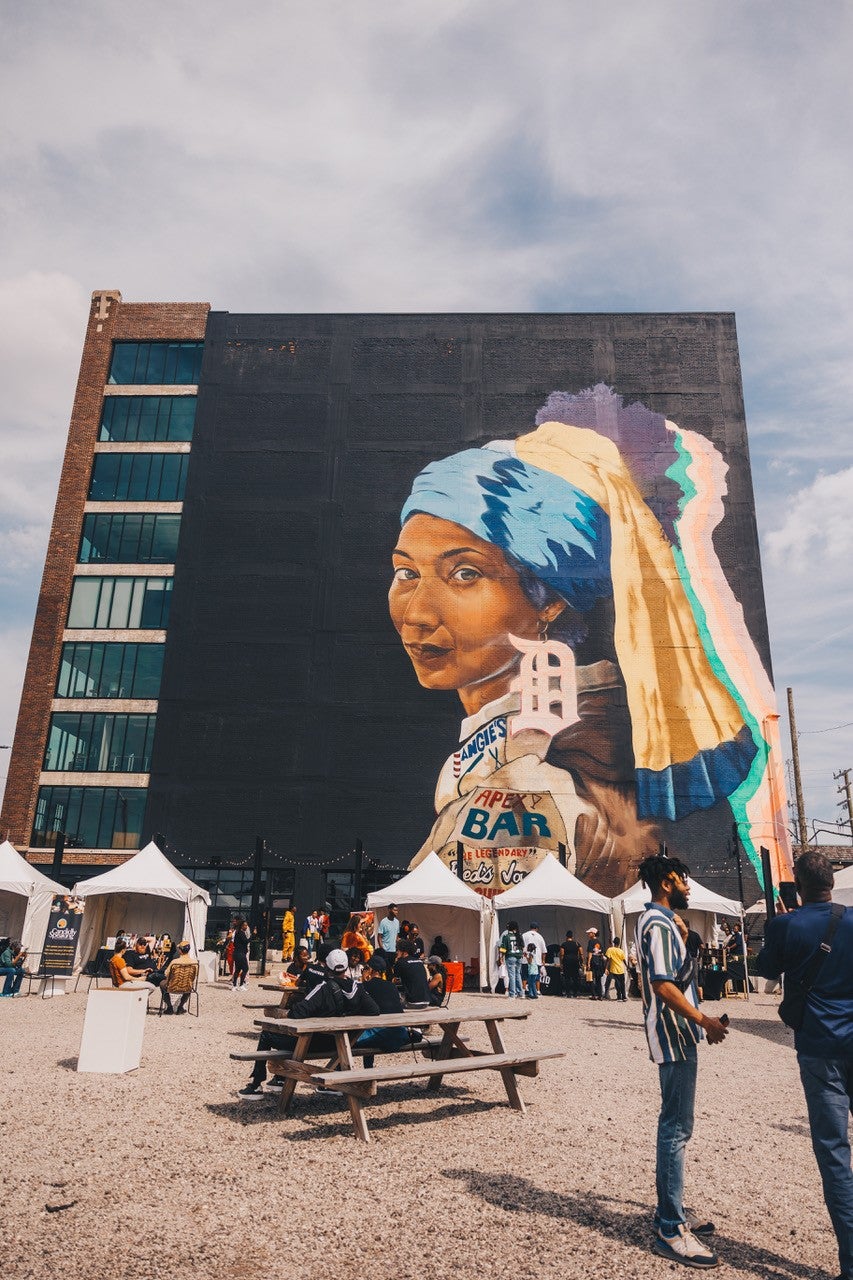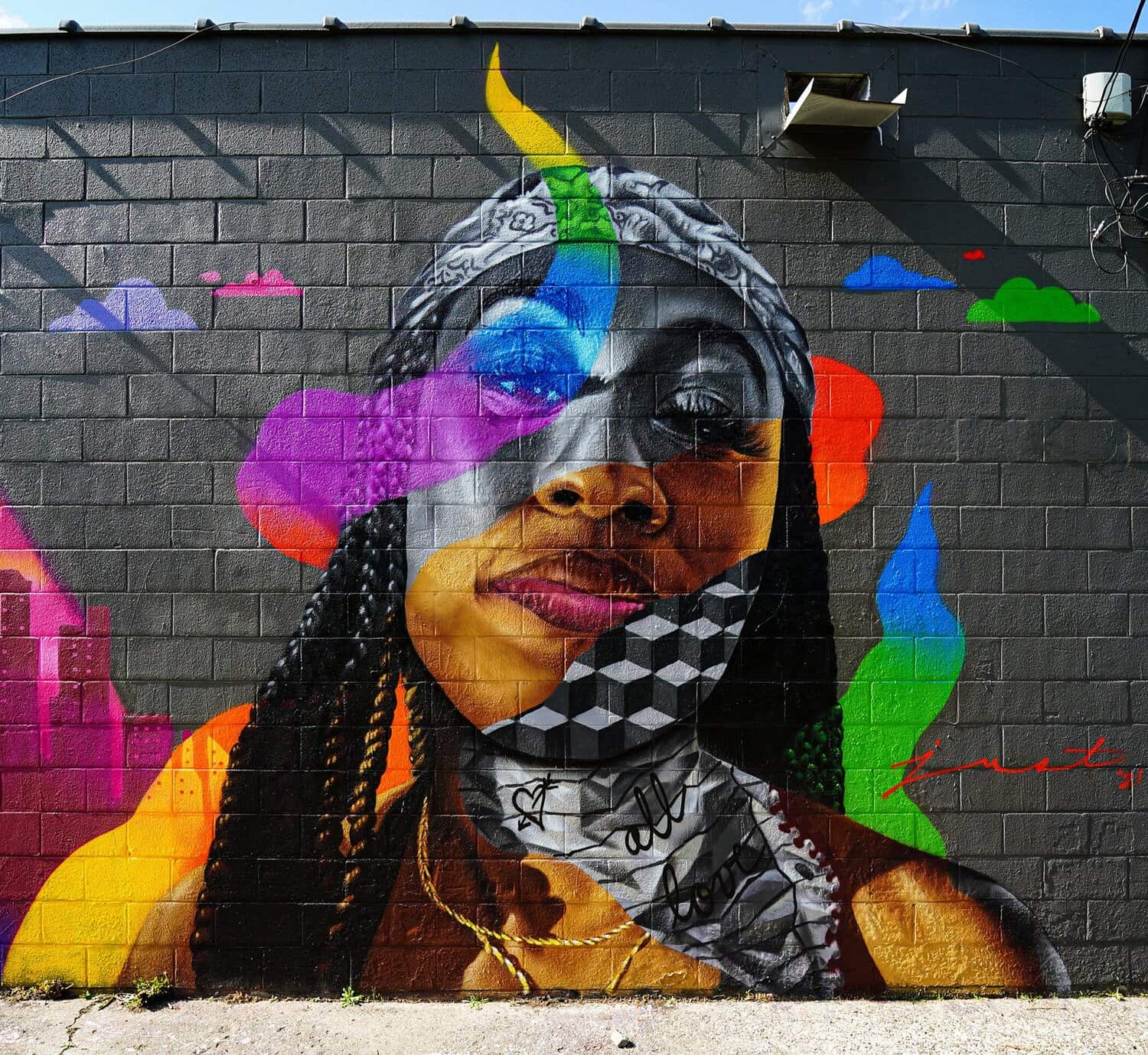
[ad_1]
Last week, Detroit was once again the host of the second biannual BLKOUT Walls Mural Festival. The all-Black produced festival was co-founded by Sydney G. James, who was born and raised in Detroit, Thomas “Detour” Evans from Denver, and Max Sansing of Chicago.
As James told ESSENCE, “In the mural painting world period, the absence of Blackness is prominent,” continuing, “the broader art world is a reflection of the actual world [and] it is racist.”
The idea for creating their own festival came after the three co-founders participated in a Denver festival, and the conversation turned to how happy they were to see each other because, “oftentimes we’re the only ones.” James said they all agreed that “we should have our own festival,” and they left Denver fired up “and immediately got to work.”

In 2021, the inaugural BLKOUT Walls Mural Festival was held in Detroit, and it was a rousing success. James shared that “what distinguishes BLKOUT Walls from other festivals, is that is an all-Black created, organized completely by all people of color.”
“It’s really about the artist community and building both a strong artist fellowship and community relationship together. We recognize, especially as Black people, that public art is a conversation,” said James. “It’s not just me as an artist by myself deciding what I’m going to put up in your neighborhood and then going back home. It’s a two-way conversation because it should appeal to the people that actually live there.”

While the initial proposal for the 2022 Festival was to relocate to another city, they eventually pivoted. The plans for housing the festival in Oakland, CA last year fell through after the mass layoffs in the tech industry, and James explained how they lost funding and had to cancel.
But this year, they returned back to Detroit, stronger and better than ever. “We became an official international festival. We had artists traveling in from Guyana and Jamaica,” James proudly stated.
Another unique fact about the BLKOUT Walls Mural Festival: “We pay,” said James.
“Historically, many art mural festivals don’t pay the artists. But with us, we’re stipend-based because it’s not commissioned,” adding, “but everybody gets equitable treatment, there is no hierarchy.”
Even though the festival has officially ended, the art still stands. James has high hopes and wants those who attended the festival or are viewing the murals after to “feel Black love exists, and it just happens to be centered around public art. It resides here in this city, and you can take it wherever you go.”
[ad_2]
Source link







